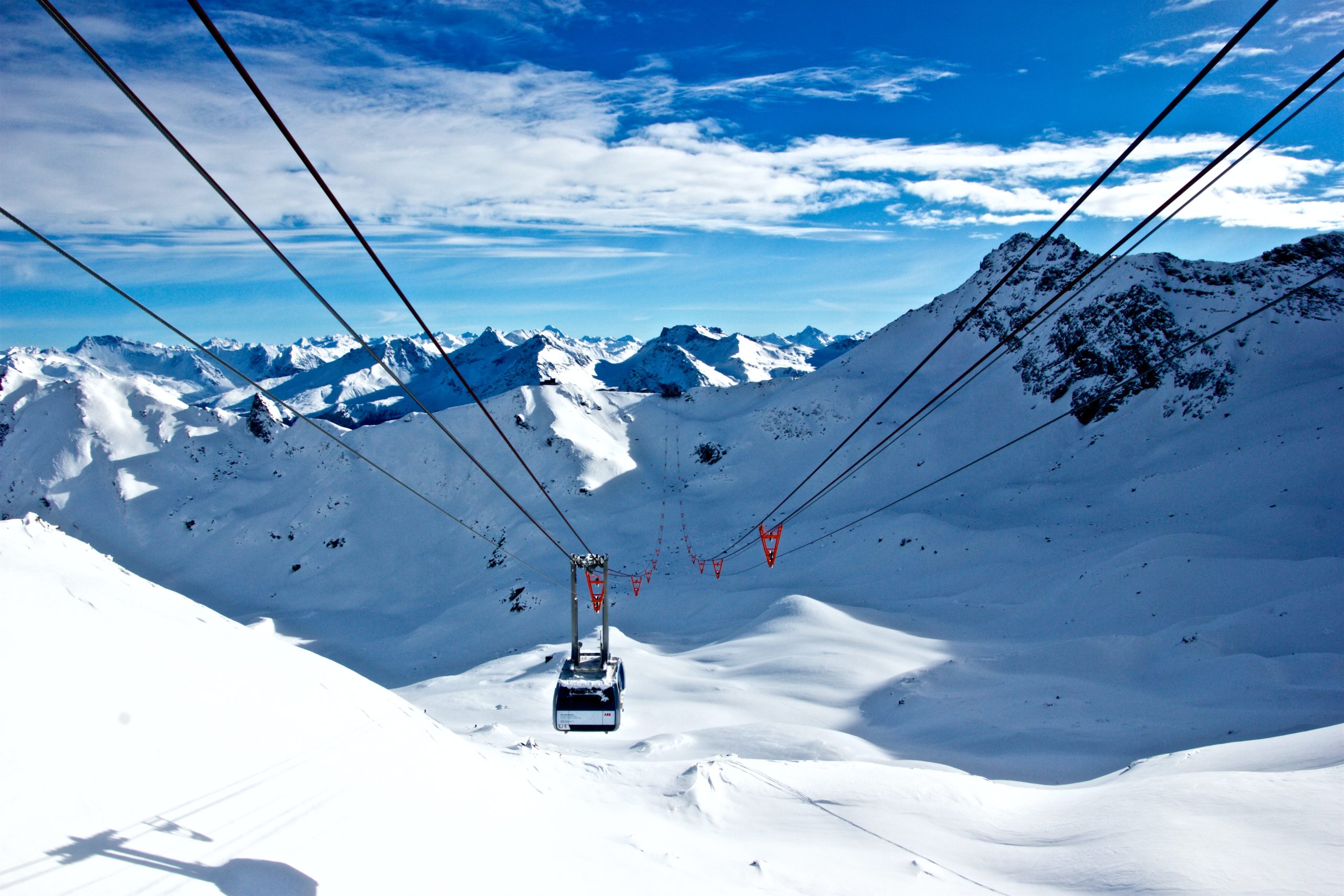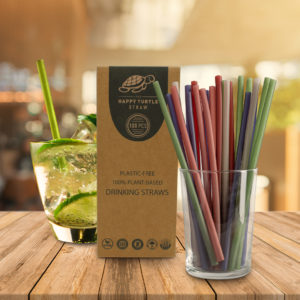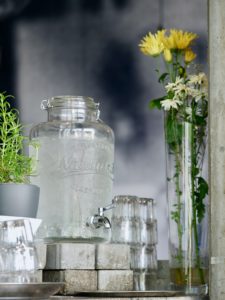
Traveling to a ski resort is one of the best adventures you could ever wish for in the winter season. The beauty of the white snow-covered mountains, enjoying a meal by the fire, taking in the fresh air are just some of the reasons why tourists head to the slopes every year.
With the winter ski season just a few months away it is essential to consider unsustainable concepts such as plastic waste in ski regions. In addition, restaurants, cafes, bars and hotels in the ski fields need to establish principles of environmental protection and social commitment as part of their daily operations.
This article will look at how ski resorts and restaurants can reduce their single-use plastic waste this winter and why it matters.
Why It Matters

Microplastics (non-biodegradable) are present at the highest and lowest points of the earth. We have reached a place in time where we can see the devastation that single-use plastic has on the natural environment, our health, the fragile eco-systems, wildlife and even the snow. Whilst there is no denying that microplastics have reached the ocean, many will be surprised to learn that it has now reached ice and snow.
Researchers have found microplastics in the snow in the most remote parts of the world, including the French Pyrenees, the North American Rocky Mountains, and the Sagarmatha Nation Park, the home of Mount Everest. In addition, Microplastic has been found in the ice of the Northwest Passage in the Arctic.
Research shows that over 95% of single-use plastic used in a hotel room ends up in landfills. Now is the time to make a drastic change and reduce or, even better, altogether remove harmful single-use plastics. Removing plastic is an excellent way to sustainably manage day-to-day operations, and the good news is that companies have already started.
What Steps Can Businesses Take To Achieve Their Plastic-Free Goals
Sustainable tourism is essential for the industry’s long-term viability, and plastic is one of the critical environmental issues that business owners must address. Reducing plastic waste can be integrated across all sectors of the hospitality and tourism industry, including hotels, spas, restaurants, bars, cafes, lounges and guest rooms.
Here are ten steps businesses can reduce single-use plastic:
#1 A comprehensive waste audit and assessment of plastic usage is critical for any business to undertake in the beginning phase. Start by monitoring the amount of single-use plastic waste and whether certain products are wasted more than others.
#2 Find alternative suppliers who use recyclable or decomposable materials instead of plastic packaging.
#3 Educate and train staff; this is key to achieving your new sustainable business goals.
#4 Seek out plastic-free food delivery where suppliers use crates or boxes.
#5 Responsible use of plastic-free meals starts in the kitchen with the planning of seasonal menus by the chef (farm to table is a sustainable alternative).
#6 Consider a re-using system of glass bottles for water service for guests to replace plastic water bottles in guest rooms.
#7 Go plastic-free when serving a meal and use glass and silver tableware and linen napkins (eco-friendly packaging for takeaway meals).
#8 Growing your own produce reduces the need for plastic packaging and shipping of ingredients from abroad.
#9 Remove single-use plastic products from the mini-bar in hotel rooms, replacing them with refill bottles, glass or cans.
#10 Remove plastic straws, lids and stirrers from beverages and encourage guests to reuse an eco-friendly travel cup.
Single-Use Products You Can Easily Swap For Sustainable Alternatives
“A single 200-room four-star hotel can use nearly 300,000 pieces of single-use plastic in a month” – Eco-Business
According to Eco Business, one 4 star hotel at total capacity can use on average the following single-use plastics in one month: 20,000 plastic water bottles, 49,765 plastic amenities and amenity packages, 216,693 pieces of plastic for food and beverage operations (plastic wrap, storage bags and latex gloves) and over 13,375 plastic bags. The total does not consider plastic in hotel laundry services or third-party delivery services from food and beverage delivery.
Plastic has always been a convenient choice, but with so many excellent plastic-free options on the market, there is no need to continue using resource-heavy single-use items.
Here is a list of products that all have an available sustainable alternative.
- Plastic Bags
- Plastic Bottles
- Plastic Cutlery
- Plastic Cups
- Plastic Straws
- Plastic Packets (condiments)
- Plastic Containers
- Plastic Cling Wrap
- Plastic Ziplock Bags
- Plastic Toiletry Packaging (soap & toothbrush)
- Plastic Sachets (coffee, tea & sugar)
- Plastic Key Cards (hotel rooms)
Sustainable Replacements For Single-Use Plastic Products
| SINGLE-USE PLASTIC ITEM | SUSTAINABLE ALTERNATIVE |
| Plastic Bag
Plastic Zip Lock Bag Plastic Containers Plastic Cling Wrap |
Reusable Tote Bag/Canvas Bags
Biodegradable Packaging Beeswax Wraps/Silicon Covers Reusable Containers |
| Soap Bottles
Shampoo Bottles Plastic Toothbrush |
Refill Soap Dispenser
Refill Shampoo Dispenser Bamboo toothbrush |
| Plastic Straw
Plastic Cutlery Plastic Bottle |
Natural or Biodegradable Straw
Reusable Cutlery/Biodegradable Cutlery Reusable Glass Bottles/Water Dispenser |
Swapping the basics such as plastic bags, bottles, cutlery, and cups is one way to reduce single-use plastic waste drastically. The majority of these items are used for less than a few minutes by the consumer but last 1000s of years breaking down to produce microplastics that remain in the natural environment.
If you doubt that making one sustainable swap can make a positive impact, take a moment to see how some of the leading hotel chains are reducing their plastic waste.
- The Hilton Hotel chain (located in over 119 countries) estimates it has saved over 40 tons of plastic by replacing plastic key cards with over 7.6 million digital key downloads. Furthermore, Hilton has pledged to reduce their overall waste, including food waste, by 50% by 2030.
- The Marriott Hotel chain has started replacing individual bath bottles with dispenser containers as part of their global plan to reduce single-use plastic bottles, thus saving 34.5 million bottles and 375,000 pounds of plastic each year. In addition, 91% of furniture, fixtures, and equipment used in the hotels is purchased from suppliers that reduce, reuse or recycle their packaging.
- The InterContinental Hotel Group installs bulk-size amenities in hotel bathrooms (over 843,000 rooms) to remove 200 million single-use plastic mini bottles. By 2030, the hotel chain has a sustainable target of reducing all single-use plastic waste and or moving to recyclable alternatives.
- Pejo 3000 Italy has over 12 miles of ski runs in Val Di Sole, and the resort region has taken a step forward, ensuring it will be 100% free from single-use plastics this winter. The plan includes banning all plastic bottles, plastic bags, disposable cutlery and plastic packets for condiments like sauce and mayonnaise. The move to plastic-free comes after a recent study showed a glacier contained polyester fibers and polythene; between 131 and 152 million particles were discovered by researchers. As a result, it will be Europe’s first plastic-free ski resort!
Final Thoughts
Whilst some hotel chains are making a change for the better and reaching new sustainable goals, it is also the responsibility of us as travelers to take care of nature and be mindful of our plastic waste. Selecting accommodation with clear policies for waste management, recycling, and green initiatives are some of the first steps you can take to support eco-friendly tourism.


Check to see if your hotel offers glass water bottles and refills, uses eco-friendly packaging, has a seasonal menu with local produce, and if they take some actions that support recycling. Then, as an individual, you can decide to refuse single-use plastic bags, straws and bottles to lead the way for a greener holiday next time you visit the ski slopes.
Understanding that the ski fields require immediate action to preserve their natural beauty is vital as a business owner. With plastic and micro-plastic already located in many mountainous areas favoured by tourists, these destinations need environmental protection. The tourism industry plays a huge role in ensuring the ski slopes have a future.
References:
https://www.eco-business.com/news/going-plastic-free-how-hotels-are-joining-the-anti-plastic-fight/
https://cr.hilton.com/environment/
https://serve360.marriott.com/sustain/
https://www.openkey.co/2019/07/28/plastic-problem-in-hospitality/
https://www.theguardian.com/world/2019/dec/27/italy-creates-europes-first-plastic-free-ski-resort




